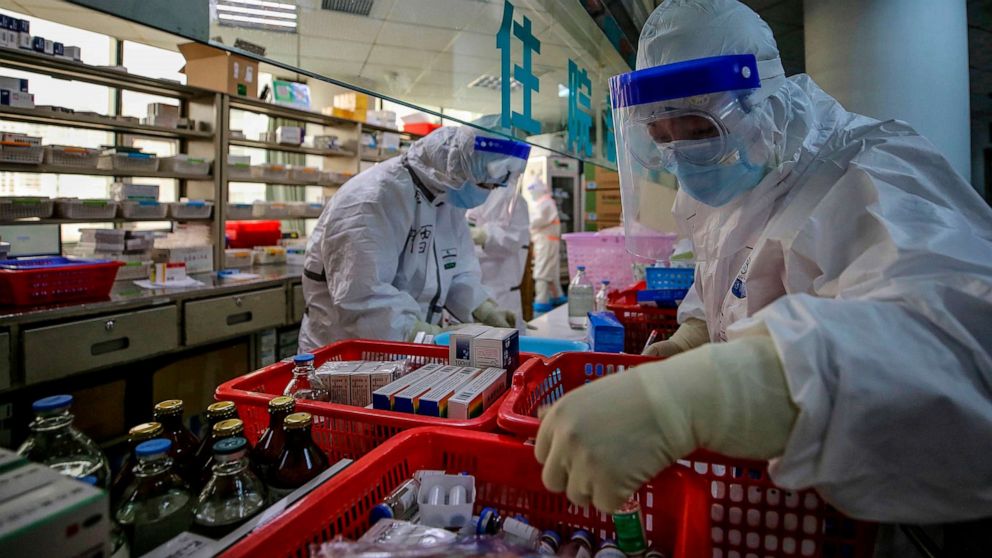Secret Service warns of scams, disinformation campaigns around spread of coronavirus
The Secret Service issued guidance urging the public to use vigilance during any major news story, warning that criminals can use the “fear” to their advantage and prey on the most vulnerable.
They called the coronavirus outbreak "a prime opportunity for enterprising criminals because it plays on one of the basic human conditions … fear."
The Secret Service said that the most common is phishing, which they described as “the fraudulent practice of sending emails purporting to be from reputable companies in order to entice individuals to reveal personal information, such as passwords and credit card numbers. Phishing scams have become ubiquitous through email communication and ecommerce.”
In one particular instance, they noted, “victims have received an email purporting to be from a medical/health organization that included attachments supposedly containing pertinent information regarding the Coronavirus.” Then either the person clicked on a link that contained malware or entered their email and password information, which is the nexus of many financial thefts.
As is common in uncertain times, the Secret Service warns of fake charity causes operating under the guise of helping people infected with the coronavirus.
“Increased caution should be exercised when donating to charitable organizations,” said the Secret Service, which issued these guidelines on Monday. And finally, one other scam the agency is seeing is criminals demanding upfront deposits or large sums of money for medical supplies.
In addition to the phishing scams singled out by Secret Service, the Federal Trade Commission and the Food and Drug Administration issued public letters on Monday warning seven companies, including televangelist Jim Bakker, to stop the promotion and sale of fraudulent products purporting to be treatments.
"There already is a high level of anxiety over the potential spread of coronavirus," FTC chairman Joe Simons said in a statement. "What we don't need in this situation are companies preying on consumers by promoting products with fraudulent prevention and treatment claims. These warnings are just the first step. We're prepared to take enforcement actions against companies that continue to market this type of scam."
The FTC said it has created a task force specifically dedicated to targeting the spread of such scams related to the coronavirus.
The warning echoed a message sent from the FTC early last month, warning consumers that scammers were already "setting up websites to sell bogus products, and using fake emails, texts and social media posts as a ruse to take your money and get your personal information."
Going after 'bad actors'
The Department of Justice on Monday also threatened to criminally prosecute individuals and companies who might take advantage of the spike in demand for personal health products like masks, respirators and plastic gloves to fix prices or rig bids against consumers.
"The Department of Justice stands ready to make sure that bad actors do not take advantage of emergency response efforts, healthcare providers, or the American people during this crucial time," Attorney General William Barr said in a statement.
It is not just scams that U.S. officials are concerned about – disinformation is also prevalent among the cyber community.

“In our view, we continue to be pointing people to trusted sources of information, CDC, the aspects of COVID itself, is always going to be the resource but also your local public health officials," Chris Krebs, director of the Cybersecurity and Infrastructure Security Agency (CISA), the cyber arm of DHS, told ABC News after an event in Washington, D.C. "And then we continue to work with the law enforcement and intelligence community on any specific disinformation that we may see that, any foreign adversaries are pushing.”
The World Health Organization has also taken the lead on combating disinformation, posting a “myth busters” page, whose sole purpose is to debunk incorrect information about the coronavirus.




